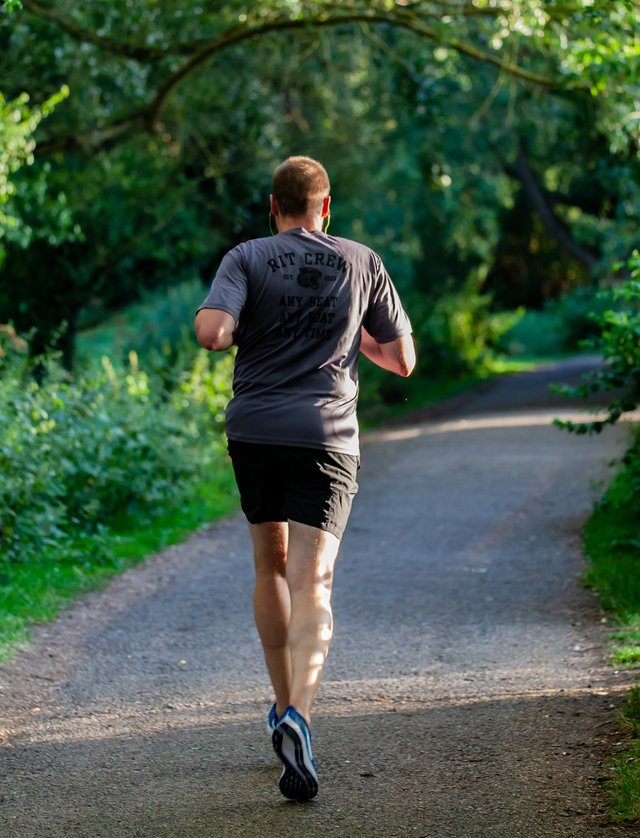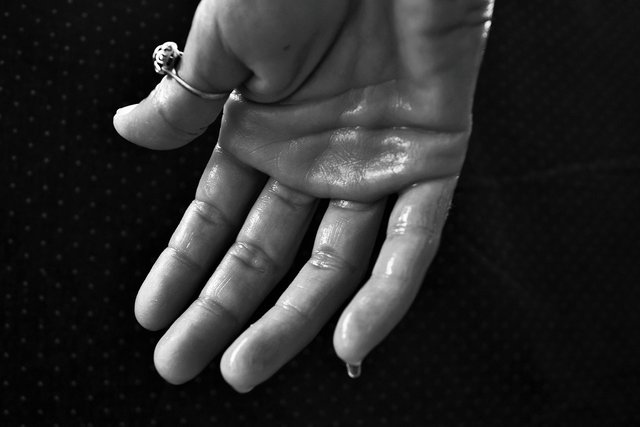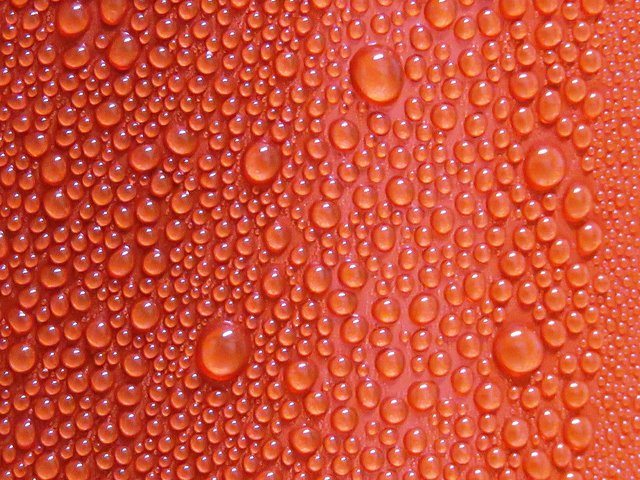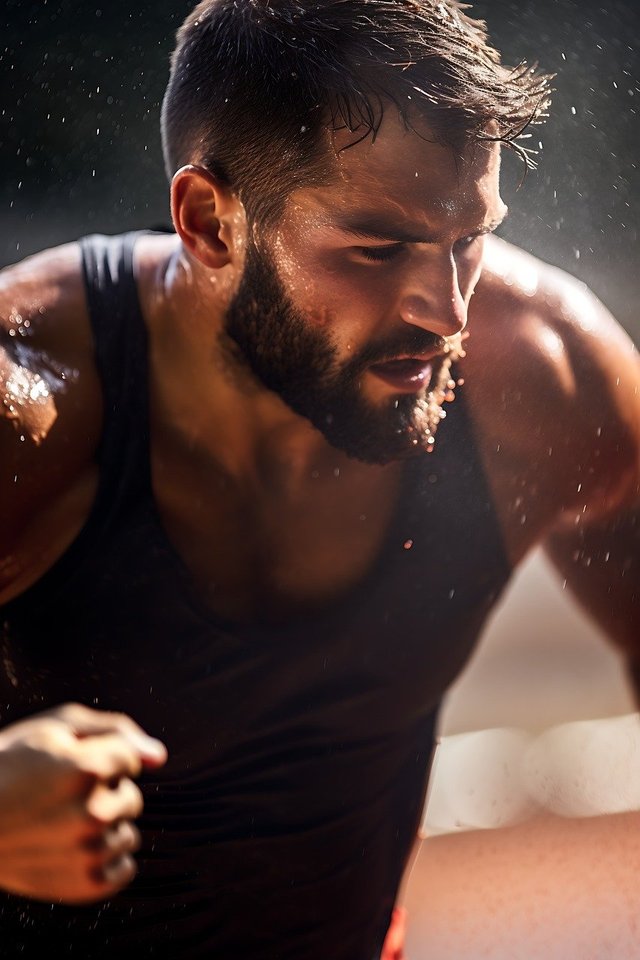
One of the conditions a person sweating beyond normal rates and ability to interrupt normal activities or cause a lot of stress or embarrassment is called hyperhidrosis. For better knowledge of hyperhidrosis, which include its cause, consequences, and control, it is important to distinguish between primary and secondary hyperhidrosis.
Primary hyperhidrosis, or focal hyperhidrosis, tends to develop in the palms, soles, axillary area and face. The cause of primary hyperhidrosis has not been determined but there are many theories, one of which is genetic. People with hereditary tendencies of developing hyperhidrosis are most probable to experience it. Further, it is assumed that primary hyperhidrosis may occur due to the failure of the autonomic nervous system that controls sweating.
Secondary hyperhidrosis is when hyperhidrosis is a symptom of another disease such as thyroid disease, diabetes or menopause. The sweating in secondary hyperhidrosis is generalized, that is, it involves the multiple areas of the skin surface, and might be associated with other signs of the primary disease. The reason for that sometimes is a particular set of medications—selective serotonin reuptake inhibitors (SSRIs) are widely prescribed for depression and anxiety disorders.

source
It was found that hyperhidrosis greatly interferes with the patient’s daily function, and results in anxiety, isolation, and restricted mobility in performing different tasks or tasks. It becomes unpleasant, causes staining and when overly done may lead to skin infections. It can also limit the person’s hand firmness, control over utensils, computer mouse or keyboard, and engaging in normal sporting activities among others.
When it comes to treatment, there are several treatment regimens for hyperhidrosis and the efficacy of those regimens differs from one patient to the other or the level of the disease. These options include:
1. Topical antiperspirants:
Prescription strength antiperspirants available without prescription are aluminum chloride which will minimize sweating under the arm. Stronger OFF- the-counter products that contain more aluminum chloride or other active agents such as glycopyrronium, may be more useful if prescribed by the doctor.
2. Oral medications:
There are drugs that can manage excessive sweating for instance anticholinergics drugs which reduce the effects of acetylcholine(neurotransmitter that influences sweat glands). Such drugs are glycopyrrolate, propantheline and oxybutynin The drugs that cause attenuation of this receptor are known as antimuscarinic drugs.
3. Iontophoresis:
This treatment involves taking an electrode and passing a low electrical current through water, then the palms and soles are dipped in this water. The electrical current helps in the deposition of stuffs like aluminum chloride into the skin to minimize sweating.
4. Botox injections:
So chemicals such as botulinum toxin (Botox) can temporarily paralyze the glands and stop sweating there. They proved to be most helpful in axillary and palmar forms of the condition. However, it is not a surgical process and it may have some adverse reaction, while there ability to produce the expected results may diminish after some time.
5. Endoscopic thoracic sympathectomy (ETS):
ETS is a surgery whereby the sympathetic nerves that can cause sweating on the affected part of the body are cut off or destroyed. This procedure is in most cases used only in patients who do not respond well to any other treatment and whose hyperhidrosis is severe. But it can lead to compensatory sweating, or sweating in another area of your body.

6. Minimally invasive procedures:
New innovations in health care mean that there are some relatively non invasive treatments for the pathology for instance microwave thermolysis together with Radio frequency ablation to treat sympathetic nerves that bring about sweating.
In addition to medical treatments, lifestyle changes can help individuals cope with hyperhidrosis symptoms:
1. Avoid triggers:
Ways to contain excessive sweating include steering clear of stress, anxiety, caffeine, spicy foods or whatever makes you hot.
2. Use absorbent clothing:
As for the clothing, the moisture-wicking, lightweight and breathable ones should be worn to better deal with excessive sweating, and keep the skin dry.
3. Regularly wash and dry clothes:
This can help avoid skin infections and also growth of bacteria that cause body odors.
4. Manage stress:
To avoid stress induced sweating people can practice the other measures like meditation, Yoga or deep breathing.
5. Maintain a healthy lifestyle:
It should therefore imply if you sucked a balanced diet, exercising as well as having a healthy sleeping pattern since it will wipe out excessive sweating.
Misconceptions about hyperhidrosis include:
1. Hyperhidrosis is a rare condition:
In fact, as mentioned earlier, the prevalence is among the low percentages and stands at 2-3% of the population.
2. Hyperhidrosis is a cosmetic issue:
However, sweating excess is even cosmetologically unpleasant and a health issue that can greatly affect the patient’s quality of life.
3. Individuals with hyperhidrosis can easily control their sweating:
Whereas some might even avoid chubby foods as a way of reducing on sweating, many sufferers of hyperhidrosis will not be in a position to avoid sweating by any means possible.

4. Hyperhidrosis only affects the underarms:
Hyperhidrosis is a condition that affects the underarms and other body parts including palms and soles, plus sometimes face. The most common place for it to strike is underarms.
Primary and secondary hyperhidrosis, effects of hyperhidrosis, and available forms of treatment must be thoroughly distinguished. Now that such myths and misconceptions about hyperhidrosis are dispelled, hyperhidrosis patients are now in a position to own their lives and have access to the right kind of medial help and probably make the requisite lifestyle adjustments.
@neelofar
@huraira50
@abdullahw2

Hyperhidrosis is due to natural and sometimes due to other diseases.
Downvoting a post can decrease pending rewards and make it less visible. Common reasons:
Submit